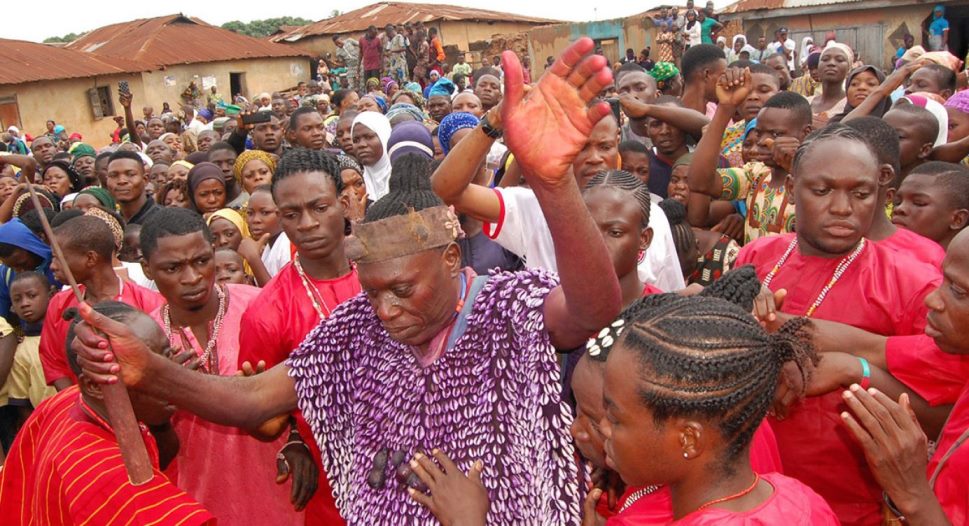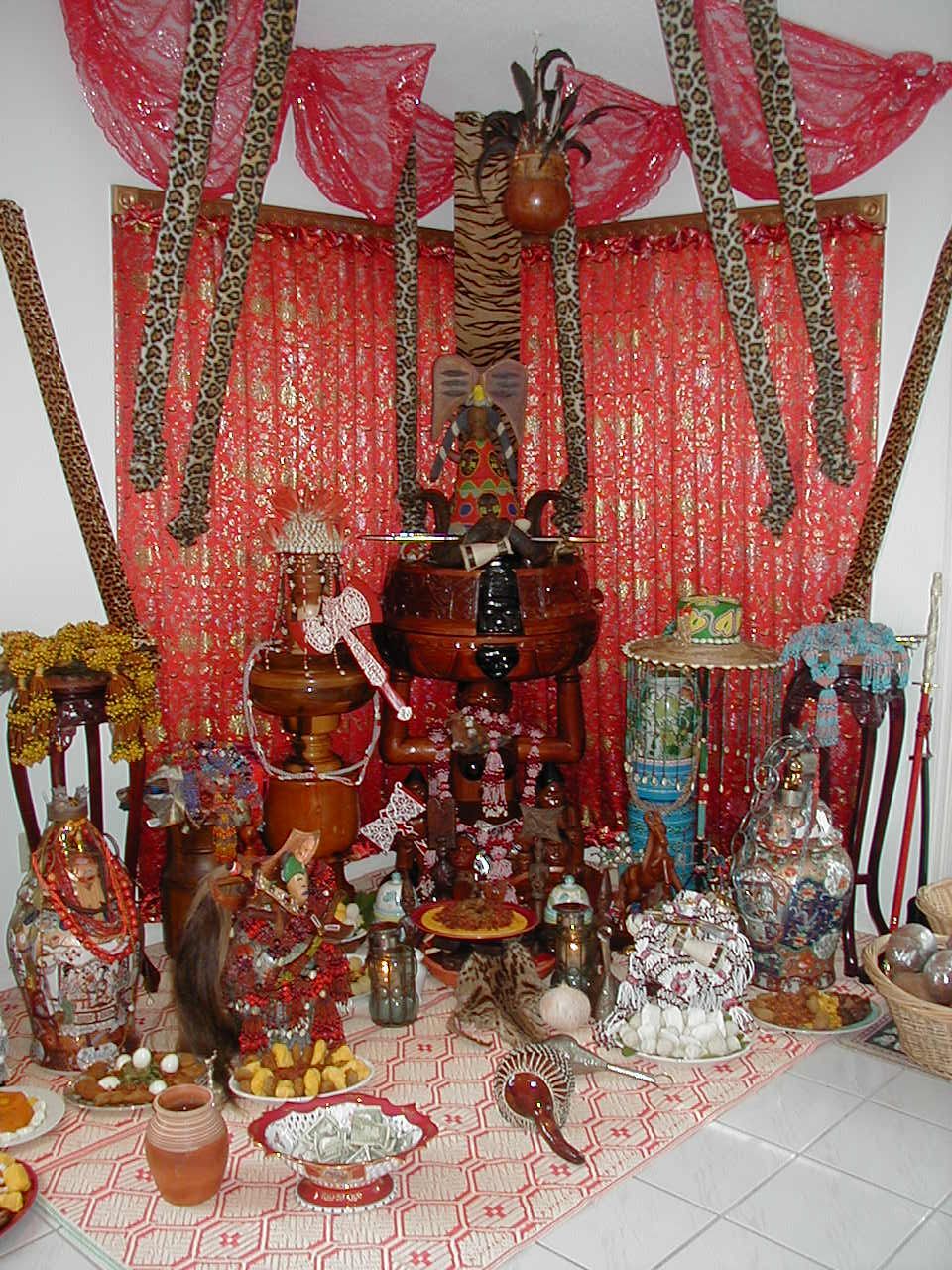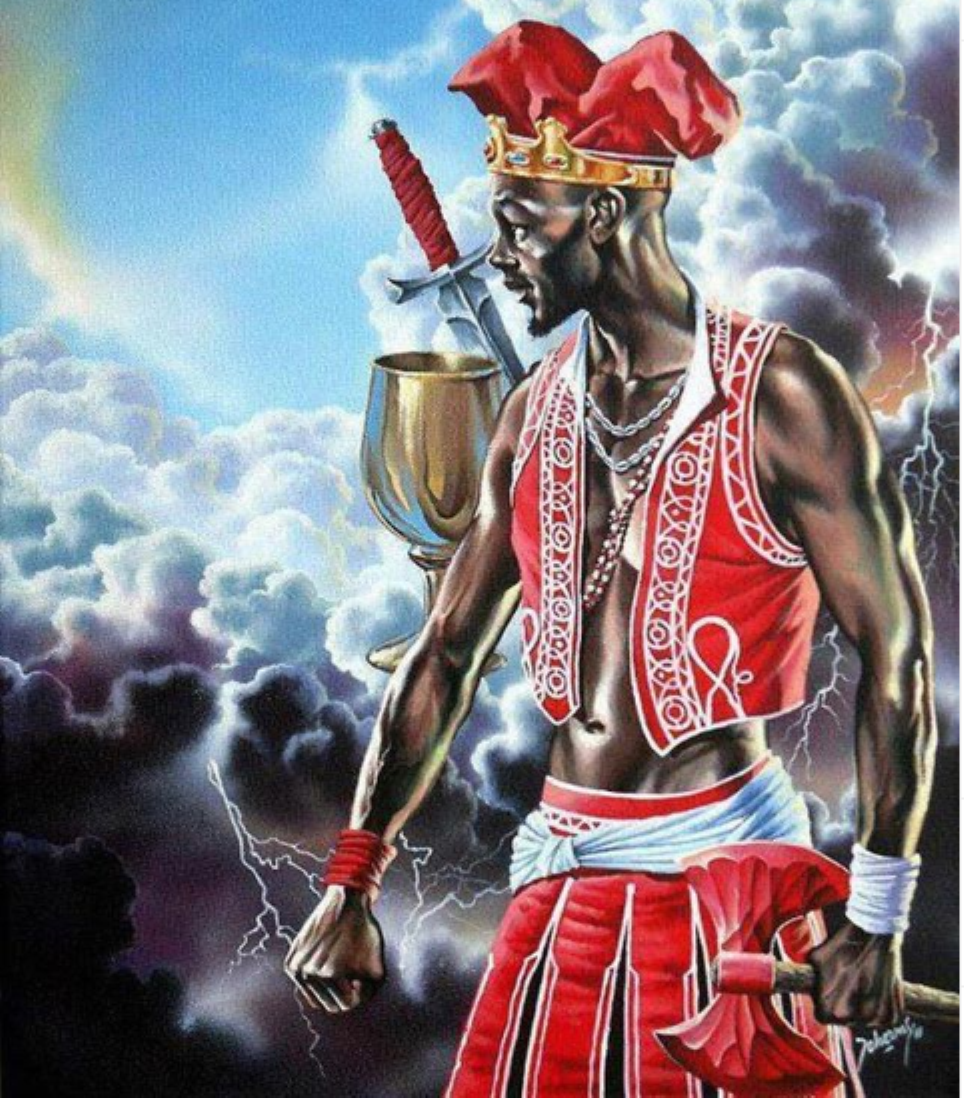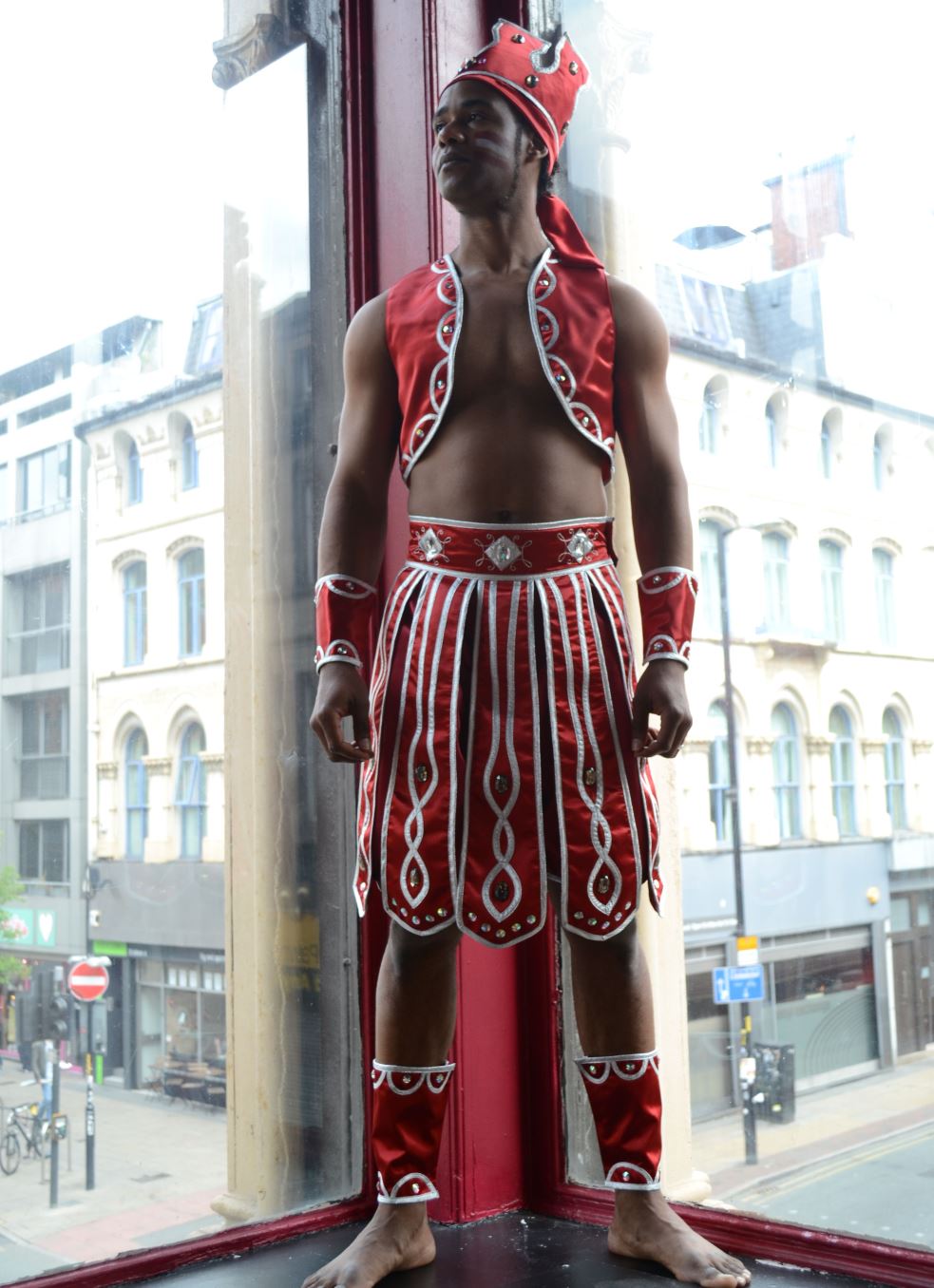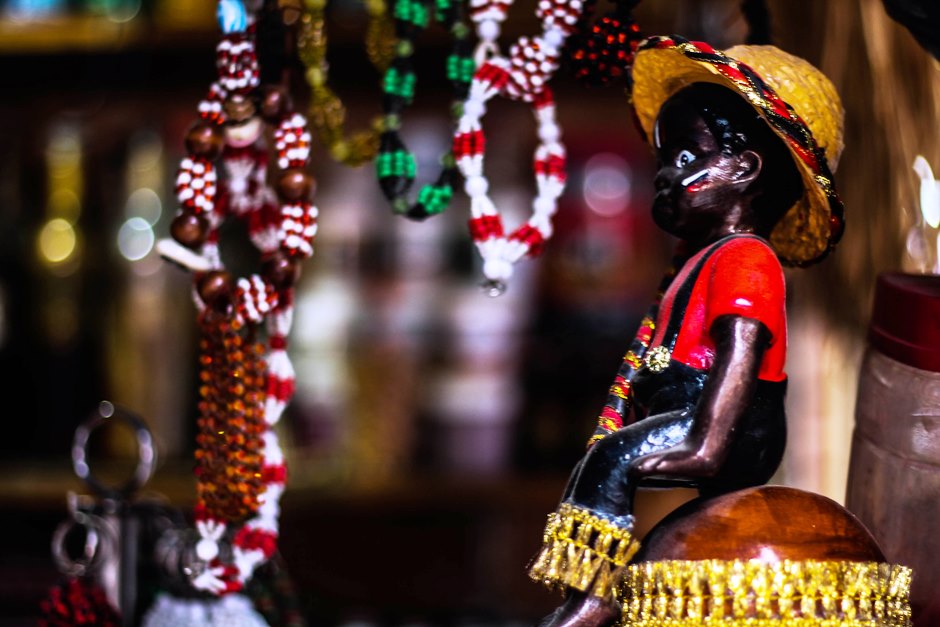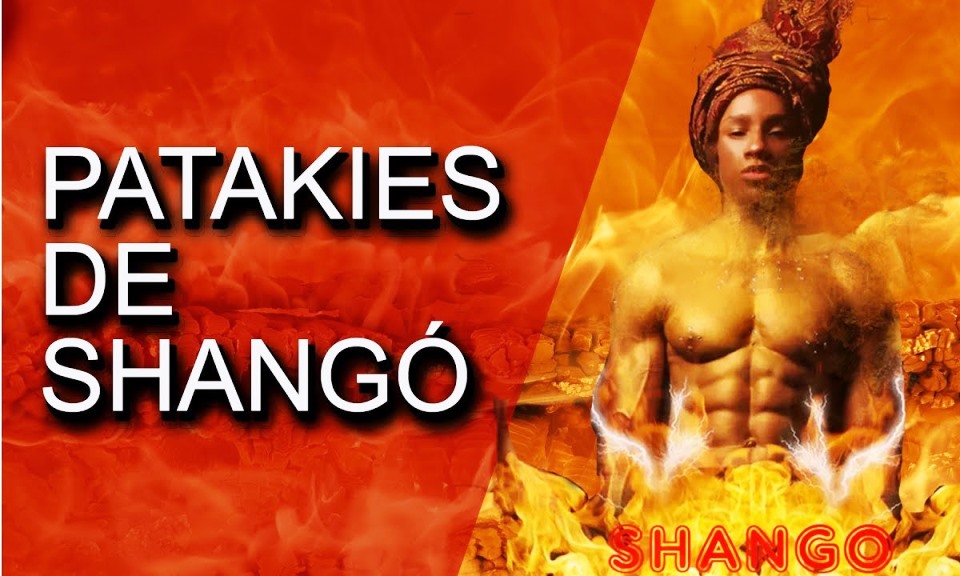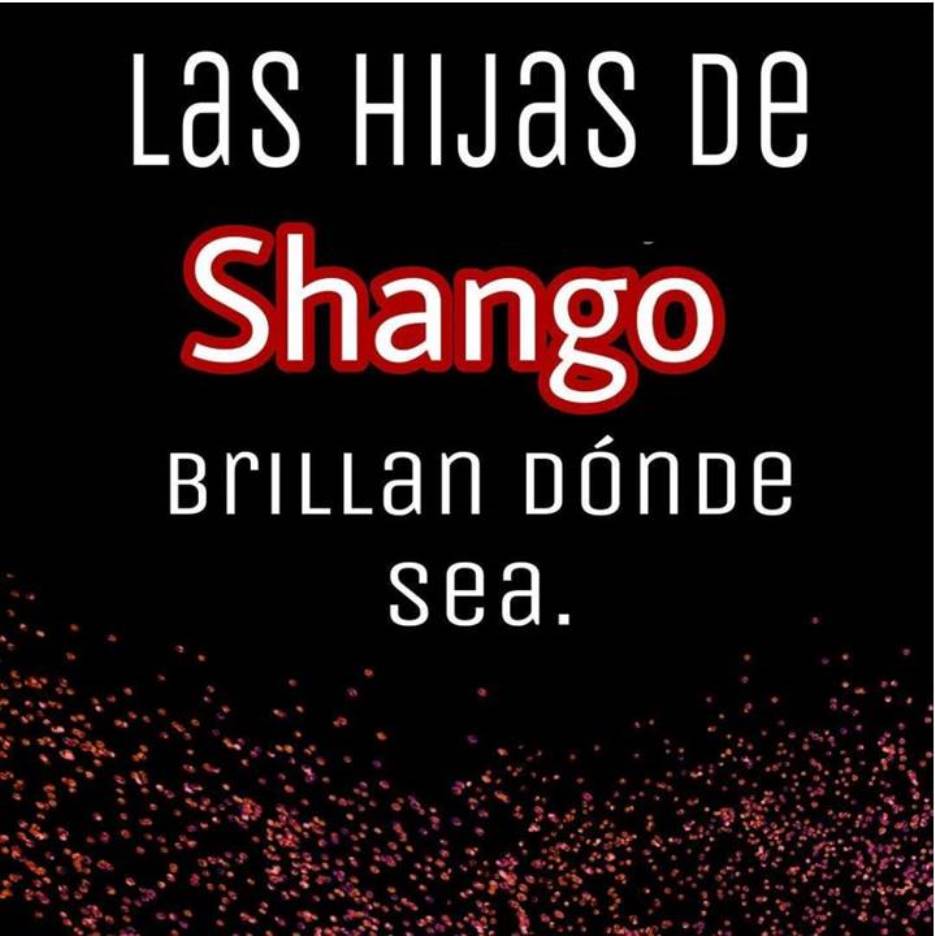Called sons of Shango, are those followers of this important deity belonging to the Yoruba pantheon, known as the god of lightning and fire, a god with great strength and autonomy, characteristics that all his children have, whether they are men or women.

Children of Shango
The so-called sons of Shango, are an element to highlight within the practice of Santeria and other cults that are part of the religion Yoruba. A person to be considered a son of this god must comply with a series of steps, under the guidance of a priest who is called within the religion Babalawo.
These cults or ceremonials of Santeria have their origins in the rites and traditions Afro-Cubans, which were practiced since quite ancient times. Today, this culture has been spreading throughout the world, and more and more faithful devotees want to be part of the family. yoruba, listed as one of the children of Shango
If you are lucky enough to have been born on December 4, just like this orisha, you can consider yourself one of his children, although this is not a faithful requirement. Similarly, it must have certain characteristics and other attributes that are similar to those of Shango in order to be worthy of being called his children, and comply with some recommendations and advice given by his holy Father.
There is some confusion among some followers of the religion yoruba who have the belief that only by giving offerings to this deity that are to their liking, they can already be called sons of Shango And this is not true. It takes much more than that.
Not everyone has this privilege, since they must meet certain requirements and steps, one of them being attending a santeria house and appearing before the priest or Babalawo, where a record is made to receive "orula's hand" Known by this name to the type of ceremonies or initiation rites of any person who wishes to be within Santeria. Find more information on Choose.
According to the belief of this tradition, it is through this activity that the practitioner is told which deity he is the son or daughter of. Each of the children of the saints or gods yoruba, has various attributes, which serve as a differentiating element between one and the other, within the wide range of deities that mythology has.
Because of this, the children of Shango They are no exception to this statement. They can be differentiated from the children of other deities, in various aspects, for example, in their taste for dancing. They enjoy the celebrations where there is dance music, having a preference for the melody of the drumbeat, showing great skill when it comes to the execution of this popular musical instrument.
There is a ceremony in homage to Shango, which consists of performing an attractive dance, where some of their children place it on their shoulders and begin to spin it, to face the group that plays the drums. This is one of the gods that represents virility and strength, so there are many who identify with him.
Another characteristic that this special dance possesses is that the participants are usually very expressive with their eyes, adopting a threatening look, whose objective is none other than to impose their supremacy. For their part, the daughters of the saint Shango, They are somewhat masculine in appearance, since they lack all femininity, that is, they do not like to wear jewelry, nor do they put on makeup.
They are also classified as gossipy women, who interfere in matters that are not within their competence and when they obtain information, they generally distort it, disclosing something totally contrary to the real information, modifying it at their convenience, so They are not considered trustworthy people.
A positive aspect is that they are strictly faithful; they are incapable of committing infidelity or adultery, and for this same reason, they expect the same from their partner, since they are not capable of forgiving infidelity.
In the same way, they are very hardworking and hate leisure, formed with ethical principles and ideals. The sons of Shango They feel a great attraction for fire and its derivatives, such as the color red. like the saint Shango, their children are great and have great strength, so they stand out as leaders, with a positive attitude towards life.
They have a good taste for food, which helps them when preparing good dishes. They are very organized and also serve to put things or situations in order, among which we can mention: celebrations, a business, houses, among others. They are quite generous people with good humor.
Who is Shango?
Before we go any further into the subject of the children of Shango, we must first make a brief exposition of who is this important god of the Yoruba pantheon and what their main characteristics and attributes are, since they are the same ones that should be reflected in the behavior and activities of those who call themselves their children.
Shango He is a main deity within the religion and Santeria, who had many qualities of determination, strength and courage. That is why he was the god of lightning and fire, two elements that by themselves show great power. If you want to know about his power you can invoke him through a Prayer to Shango
The popularity of Shango, It is quite high, so it is among the most popular gods in mythology. He is master and lord of the elements of lightning and thunder, but also of fire. This saint possesses a great energy which he transfers to all his children. He has many loves and women to his credit due to his outstanding virility.
As for his attributes, it is said that he is very fair and places a high value on justice, which is why he often acts as the judge of the gods of yoruba. She has a great fondness for dancing and drum music. Among his characteristics, he also has a negative side, since he has a strong character, so he can sometimes become very violent.
What is Yoruba?
yoruba, is an extensive culture, originally from Africa, specifically from the Nigerian region, which has 40 million people to its credit, initially conceptualized as a type of ethnic group.
Then it came to be considered as a religion, based on beliefs, traditions and culture, that identify a people, marked by the experience of living in slavery. The practitioners of this religion are mostly farmers, artisans and merchants.
Over the years, this ideological doctrine managed to permeate the culture of many countries, adapting to unknown places that even have other types of religious values and beliefs.
The diaspora of this belief dates back to the times of colonial slavery, when a group of slaves began to move to other continents and countries, in the case of the South Americans: Cuba, Venezuela, Brazil and the Santa Fe region, specifically to La Dominican Republic.
With the arrival of the slaves were also the practices of their ceremonies and rites, since they refused to set aside their ideals and beliefs. However, they were forced to practice them clandestinely, since they were strictly prohibited.
Main features
One of the main elements that the children of Shango, is that everyone possesses by nature, the power of divination, serving this as a great attraction and attracting attention. Since they are lovers of money, they also have great business skills to be able to get rich and a lot of money, however, they do not like to have to work to get it.
They have great potential and are very intelligent, plus they contain a strong charge of positive energy. Another of the characteristics with which the children of Shango, is that like the god, the children are revelers and love dances and parties. They are lovers of good food and other pleasures of life.
Also, they are violent people, prone to attacks of anger, which makes them impulsive in their actions and even intolerant. The children of this Orisha They are usually very aggressive and vengeful if they are offended, showing themselves with an arrogant and very haughty attitude. They tend to be very jealous, not only with their partners but also with friends and other personal and family relationships, in addition to not forgiving infidelity.
Like his father Shango He is the master of fire, his children love it, and like the god, they also like the color red. They are not afraid to stand up to someone to defend their ideals, and they are usually generous with the people closest to them, transferring their same energy to them.
Another feature of the sons of Shango is that they are considered very fair beings, being enemies of injustice. Similarly, they have a great ability to tell lies. Worthy children of their Father, they like to show off their great strength, and tend to be very sexual and passionate, having relationships with different women and procreating many children. Also discover the Prayer to Yemayá.
Among the tasks where the children of Shango they are: firefighters or police officers, also standing out in the world of the arts, working as musicians. The daughters of ShangoThey are somewhat manly but very passionate women who, despite not forgiving infidelity, can have multiple partners. They are sometimes talkative but very hardworking.
Names of Shango's children
One of the distinctions religion makes yoruba regarding the conformation of others, is that its members or those who make it up or constitute it, must be baptized within the religion and adopt a new name, which will depend on the saint who is chosen as Father.
For the belief of this doctrine, that name has already been chosen for them from the moment they are born, but it is once they start on the paths of Santeria, when it has been revealed to them. Once the name is given to the person, they must wear it with great pride, they will not be able to hide it and they must present themselves with it everywhere.
It is also established within the religion yoruba and their beliefs, that the name that is given to the person will be linked to their life so they will have an influence on it, especially in their future, with which they will do great things that will leave their mark and mark their history.
In a particular way, the names of these children are linked to the Characteristics of Shango, adding an additional quality to what the personality of the bearer of said name will have to assume. Here are some of these names:
Alabi; called as the cloak of good
Arabi; lightning
bango che; king of soap
Efun Ekun; Lord of the tigers.
Ican Lenu; tongue of fire
obba ana; drum king
Obba Dinah; candle king
Obba Dimelli, King crowned twice.
obba ekun, king of tigers
obba erula, Sovereign of war.
Obba Kosokisieko, King who lives in the palm.
Obba Lari or Ilari ObbaKing's Messenger
Obba Oni, honey owner.
Obba Orun, King of the sun or of the sky
Obba Remi, my friend the King.
Oba Yomi; King of the water
Obban Yoko; King sitting.
Odu Ara, Lightning stone.
Okan Aremi; my heart friend.
Oloyu Morula Obba; the eyes of the King's son.
shango lade; his great crown
His passion for dance
According to the tradition, Shango I would have handed him his board Ifa a orunmila, (maximum deity yoruba), in exchange for giving him the skills to dance since, for him, it represents one of his great passions as well as music itself. This element even led him to be named as Coat, which means “the owner of the drums”.
Because it is a very characteristic quality of this deity, it was conferred on his children, who have great skills and ability to dance, and also in the execution of the drum instrument, seeking to emulate the holy Father.
In the midst of the ceremonies in his honor, it is said that Shango she goes down to dance with her children, and mounts on the shoulders of one of them, showing a spectacular dance. The traditional way is with a turn similar to a top, but only three exact turns, and then face the position where the drums are located.
Through the execution of his dance, he will show some of his skills, such as, for example, his strength and virility, making his dance provocative. When dancing, he will have the typical elements of his clothing, such as a striking red suit and the company of his powerful axe, which he shows during the dance like a warrior, with a very remarkable expression in his eyes that becomes threatening and even challenging.
Clothing of the children of Shangó
A very characteristic detail in the children of Shango It is their clothing or clothing, which has certain colors, which stand out and predominate, such as red and white, alternately. In ceremonials, an element that also provides great strength is a Veladora opens paths
In general, the suit is red with white borders, the shape of the shirt is quite loose and red; shorts at knee height and also red, finished in points. The color of the pants can also be white but the condition is that it will be short and with the edge ending in points.
When they don't wear shirts, they usually bare their chests, or simply put on a small red and white jacket. Other times they can only be seen wearing a kind of cross-shaped red band.
As decorations, they use red and white bead necklaces that go in an alternate position, and they have to be exactly 280 beads in total. It is also part of their clothing to wear objects that identify them with their holy Father. Shango, in specific case, his ax of power in the form of a petaloid with two heads, in addition to his sword and a cup.
How are Shango's children in love?
In view of that Shango, has the characteristics of being very virile and having many women, people ask the same thing with reference to their children, who, as has already been said, are usually very generous, with good humor, dedicated when they want, but they are also quite loving.
They have the virtue of being able to find a partner who has deep feelings, just like them. Like their Father, the children of Shango They are very passionate giving themselves completely to the loved one. However, they are also quite obsessive and jealous, which ends up causing problems with their partners.
They are usually one of those who, when they fall in love, leave everything for that person, even putting aside their family, friends, their obligations at work, everything to dedicate themselves only to the loved one. This aspect is more noticeable in the case of the female gender, because they are the most committed and sentimental.
For the male gender, showing their jealousy and obsessions, it is the way they have to represent their virility, also walking with several women, something that many do not like, because they prefer that they be faithful to them, seeing on the contrary that behavior as a lack of respect. It is said that for this reason, many men tend to suffer from heartbreak.
However, it also highlights the fact that when they choose a single woman, they give themselves completely to her and show her all their passion and love, they are even faithful to show them their true feelings. Generally, the children of Shango in love they usually follow their heart and their ideals.
Relationship with his children and Oshun
Oshun, is a deity belonging to the religion yoruba, even considered one of the most important. Practitioners of the religion invoke his name to help them in situations of conflict or lack of money. He has magical powers like the rest of the gods of the Yoruba pantheon, being the ruler of lakes and rivers. He is represented as a female deity, who also symbolizes love and fertility.
Within mythology it is sentimentally associated with the gods orunmila, Ogun, and oshosi but, he is also linked as one of the wives of Shango, the second. Due to its close relationship with fertility, many women who cannot have children invoke her name, requesting her help to become pregnant.
As for the children of these gods, it is recommended that they be avoided, it being previously established that the children of Shango they will not be able to crown a son of Oshun, nor vice versa. For religion, this is currently considered a symbol of respect, since in the past, the followers of Shango they killed the followers of Oshun, so it is better that they are not together.
The confrontation between these two gods can be compared to the occurrence of a battle between fire and water, which are the elements that characterize them both. They became rivals, because Shango carried with it actions of death and misery, while Oshun She was in charge of preventing this from happening, so the god saw the need to neutralize her so that she would not interfere with his actions. Despite this, both elements must prevail so that a balance can exist.
Ebbo for the children of Shangó
El ebbo within religion yoruba, deals with a very important area within Santeria, where work is dedicated to a specific deity or saint, through the celebration of a special ceremonial. The reasons for carrying out such a celebration can be several, but the most general are:
- to purify
- to offer
- To make a sacrifice
They are made with the aim of praising the gods and orishas, and they must be oriented to fulfill desires resulting from good actions, discarding the bad ones. In addition to having a reason, a methodology must be followed.
Among the most common requests are asking for good health, acceptance by people within social groups, good luck or fortune in undertaking new projects, or in the case of requesting love, that someone notice them but have good intentions. You may be interested in knowing the Prayer to Eleguá.
In the part of the sacrifices, they were carried out using animals for it, even being used as an offering, although it was not always well seen by some spectators of these rites. for religion yoruba, animal sacrifices are considered as a kind of control over life, in order to transform it into one of better quality.
There are times when the animal is left to live and its care is entrusted to the person who offered it. In the particular case of ebbo of the children of Shango, the types of offerings must be the following:
Four duly baked green bananas, to later place them in front of the other materials of the saint, inside a special container. Through said offerings you can ask for the health of the person, placing two colored candles and leaving the offering for about 16 days.
At the end of those days, you will have to make a dispossession bath, using various spices and herbs, according to the type of request that is going to be made. In case the request is framed in money or business, the ideal offering is wine and in case you are looking for help for things of love, offer the saint some rosé wine.
Pataki of the children of Shangó and Oyá
The term Pataki, It has to do with the history that constitutes each odun, many of which are part of a kind of metaphor. This a mystical and spiritual place, where the god ruled Obatala and all the other deities could coexist. These short stories served as references to publicize some situation that occurred.
Most of the time, they did not offer enough clarity, and on the contrary, they tended to confuse everyone who read them. For this reason, they made the decision that they should be read only by the ifa priests, who were the ones to make the correct interpretation, in addition to being all the participants of Santeria, who hold a higher rank than the rest of the members.
As for explaining who is Hey, we can point out that it is a deity belonging to the female gender, which symbolizes within the religion yoruba to passion and savagery. As characteristics, it can be said that it is a orisha self-confident, capable of making the right decisions and without any hesitation or doubt.
Within the Yoruba pantheon, it has a high degree, being very powerful and disciplined. She has been given the power and domain of lightning and wind. She is one of the wives of Shango and it manifests itself on Earth through the occurrence of some natural disaster, since it is a tornado. His presence inspires mystery and elegance and mystery.
Following is the story of a stream about the children of Shango, which begins with the visit that this deity made to Oshun. In this meeting there was an altercation where the saint was questioned in reference to whether he did not feel ashamed to be with a defective woman.
Shango He did not know who the female was referring to, so he immediately clarified that it was Obba, who ripped the scarf off her face, noticing the fact that one of her ears was missing.
After this, the saint decided that he was no longer going to live with her, to which she reacted by making the decision to appeal his decision in a judicial way. Shango He explained the reasons for his action, however, he agrees to go to heaven with her, but making it a condition that when he goes to Earth, he can only do so if he takes his descendants with him. The sons of Shango they wear a white scarf, to continue with the tradition.
Phrases to your children
Shango He has dedicated several special phrases to his children, with the intention of providing them with a series of tips, with which they can feel good about themselves and with the outside world. Among the lists with the most common phrases are:
The lion is a lion, even if they cut off his mane, so don't stop for anything and keep going.
Do not fear anything or anyone, I will always be here with you, so wear me with pride.
I won't take the pleasure out of fighting your own wars, but if you need help, I'll be there for you.
If the past ever calls you, do not answer it, because it has nothing new to offer you, better live in the moment.
Do not act impulsively, because only regret and shame remain afterwards, which are a punishment for all those who act without thinking.
Just as the waves withstand the blows of other waves, I will teach you to withstand the blows that life will give you.
Anyone who wishes me ill will turn against him, affecting his own destiny.
If you like this topic about Santeria and its deities, in addition to this article, we invite you to also review within our blog the Prayer to Obatala
